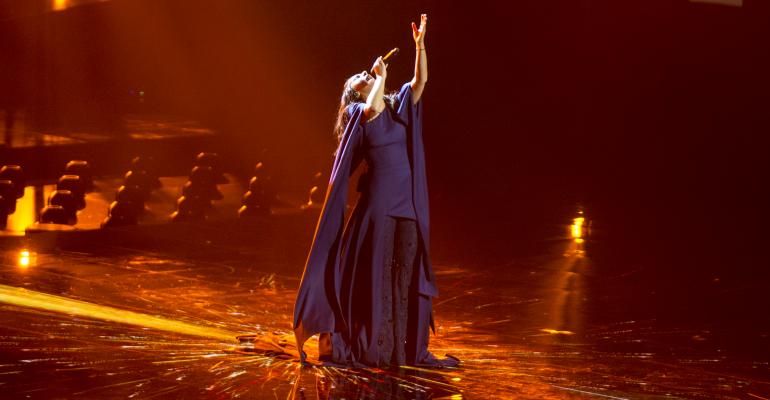The Eurovision Song Contest, happening on Saturday, May 13, is a competition between 42 countries in the Eurovision television region and also Australia for the best pop song. Don’t laugh, this is serious business, Eurovision unleashed ABBA on the world in 1974, and trying to win it was so important to the Soviets that singers were allowed past the Iron Curtain to compete during the Cold War.
Eurovision is broadcast live almost everywhere in the world, from China to Canada, with the exception of the United States. Each country holds their own nationwide song competition to pick a favorite; the winners go to the Eurovision final where the best song is chosen by votes from a panel of judges from each country, and also by telephone voters all over the world. This part is where it gets political: Phone voters cannot vote for their home country, so theoretically someone with a Swedish cell phone number cannot vote for a Swedish song. But since Eurovision voters are almost as fanatical as World Cup soccer fans, and European borders are open and usually not very far away, it is not unusual for fans to drive to another country, buy a burner cellphone (or 10), and then use it to vote for their home country’s candidate on the night of the competition. Or they can use their votes to make a political point. In 2016, less than a year after Russia’s invasion of Crimea, a Ukrainian singer called Jamala won with a song called “1944,” about her ancestors being forced out of Crimea by Josef Stalin. The Australian entry won the panel vote; the phone voters propelled Jamala to the top spot.
Here are some lessons planners and politicians can learn from this huge international event
- Be creative about the venue. If you win, you host, meaning Eurovision organizers only have one year to book a venue and there is almost no flexibility on the live broadcast date or the location. This year Eurovision is being held in the International Exhibition Center in Kiev, a venue more used to oil and gas expos than music events.
- Don’t see language as a barrier. There is no official language for the show although English and German are common second languages for many of the performers and staff. Long-time production director Ola Melzig is fluent in Swedish, English, and expletives, but many crew members find smiling a lot and a smart phone with Google Translate will get you what you need.
- Have backups for your backups. The show is broadcast live to several hundred million people around the world, no excuses. In Sweden last year there were enough onsite rented generators on standby to keep the Ericsson Globen Arena up and running for a day, even if the rest of Stockholm had gone dark.
- Work with the same team. The organizers change each year depending on which country wins, but the nuts and bolts of the competition are handled by the same TV broadcast teams and the technical crew is relatively consistent. That’s why, when 21 members of the producing staff quit in mid-February, the preparations continued uninterrupted under Head of Production Melzig, who has worked on 13 of the contests. The lighting designer, Fredrik Jonsson, and many other members of the event crew are Eurovision regulars.
- Don’t antagonize the audience. The 2016 Russian entry gave an extraordinary performance with amazing visuals but the popular vote is based on, you know, popularity. This year, because of Crimea, the Russian entrant was denied a visa and Russia is boycotting the event.
- Know your limits. In 2016 Ivan, the contestant from Belarus, wanted to perform naked onstage with live wolves. The organizers said no. Ivan countered by appearing naked with hologram wolves. I’m going to let you Google that one for yourselves.





